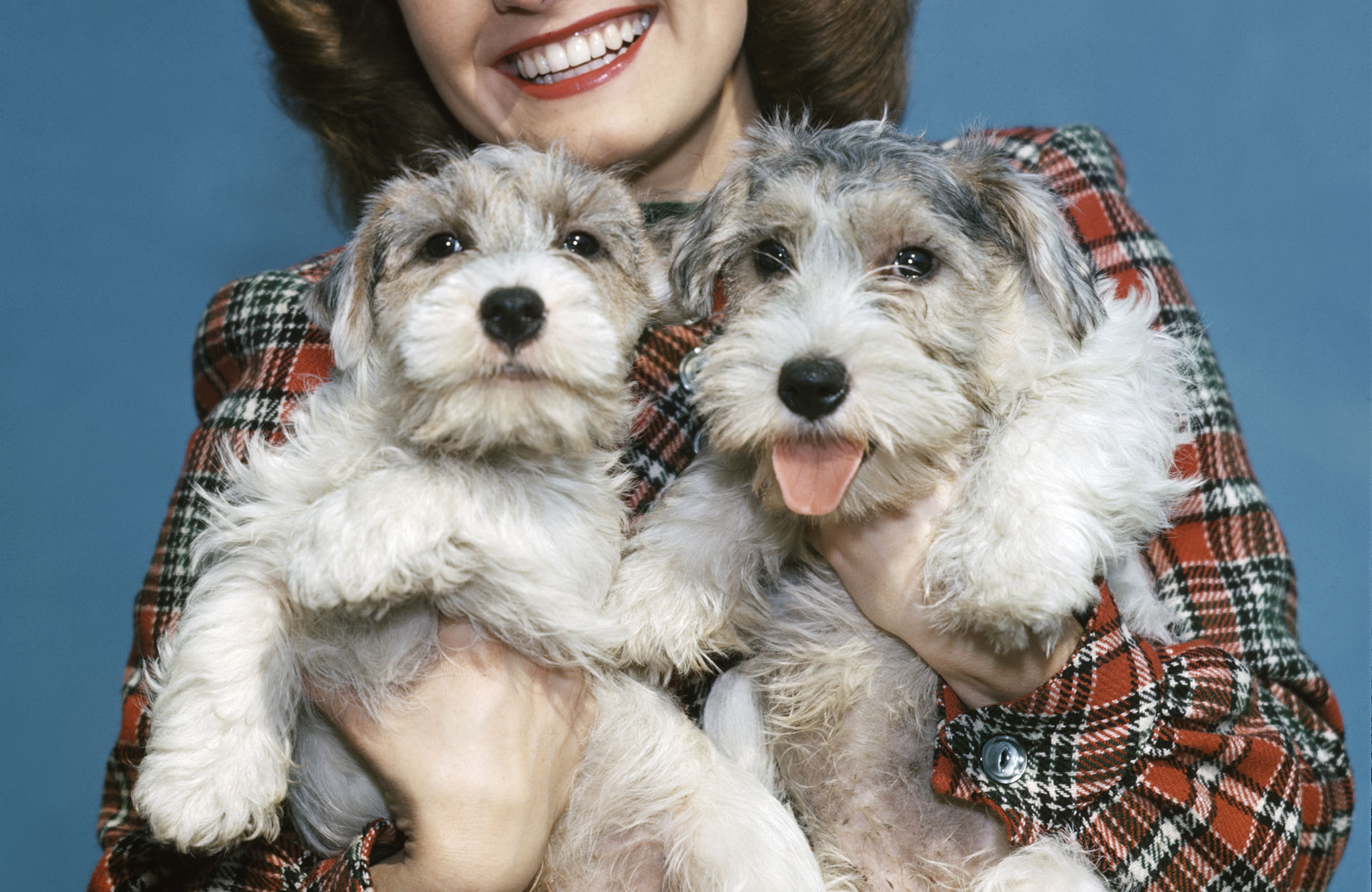'Grumpy, stubborn, maddening, a one-off... but sweet, unusual, loyal and full of love. Above all else, he was our odd dog'
Lucy Baring says goodbye to a much-loved and missed four-legged family member.

Exquisite houses, the beauty of Nature, and how to get the most from your life, straight to your inbox.
You are now subscribed
Your newsletter sign-up was successful
The collapsed bag on the kitchen floor, the squeak of the back door as it opens and closes, a lump in an unmade bed… for a fraction of a second, I think these are Fletcher. But they’re not, because, exactly a week ago, Fletcher, our dachshund, was put down, put to sleep, passed, died, however one wants to put it—and vets put it in a variety of ways. Blessed relief or murder? It feels like both and neither. It also feels very quiet.
Fletcher was the most expensive puppy per inch we had ever heard of. I found him through an online search, which took me to Bexhill and a house with very white carpets and very white sofas. I made my sister-in-law come with me, so I wouldn’t lose my head. We were not allowed to meet the mother, who, we were told, would find the visit upsetting. The breeder was out, so her boyfriend brought us the puppy.
Looking back, I wonder about the unmet mother and the white carpets in a dog breeder’s house, but, at the time, I had no view on this because I had, of course, lost my head. Within an hour, Fletcher was coming home on my lap — named after Ronnie Barker’s character in Porridge.
"He was Captain Mainwaring in gait and demeanour, displaying no sense of humour and incredulity if someone tried to treat him like a dog"
A few months later, he was reversed over by my brother, having hidden under the back wheels of his Land Rover. My brother was made to feel the full weight of that incident on every subsequent encounter, when Fletcher would eye him dolefully and fake shiver. Fletcher enjoyed these meetings enormously. Cars became something of an obsession: he would leap into anything with an open door, no matter to whom it belonged. A bricklayer left here at the end of the day and found him under the units built into the back of his van when he was nearly home.
Fletcher thought a lead was an insult and would lie on his back in the middle of a road if forced to wear one. If walking with someone else, I would take their dog forward until Fletcher could bear the strain of seeing me with another dog no longer, at which point, he might get up. When younger he disappeared for hours, which, in unfamiliar territory, once led me to exhort our host to go home, fry bacon and return with a rasher I could dangle down the hole where I’d last seen him. On his regular walk, he often turned around and went home alone.
He liked lying on our bed during morning tea. He loved sunbathing. He loved our family and he loved me, with a devotion that could be a little stifling. He hated me talking to visitors or friends and maintained a voluble version of tugging my sleeve throughout.
He only liked one other dog and broadly thought most others to be fools/trouble. He was Captain Mainwaring in gait and demeanour, displaying no sense of humour and incredulity if someone tried to treat him like a dog by, say, throwing a chew or toy to retrieve.
Exquisite houses, the beauty of Nature, and how to get the most from your life, straight to your inbox.
He hated anyone dancing or singing. He loved swimming. He became blind and fairly deaf and developed what the vet called ‘doggy dementia’. He changed from sleeping all day to being unable to settle and consumed with panic even when on our bed all night. He was not enjoying himself. He left his final signature by the back door where I trod in it on returning from the vet without him. I am not making that up.
The messages received since he died all allude to his particular character: grumpy, stubborn, maddening, a one-off, ‘but strangely sweet’. It is all true. He was unusual, loyal and full of love. Above all else, he was our odd dog.

Dachshunds: The undisputed kings of their castles, no matter the size (or species) of the other residents
Kate MacDougall gets the lowdown on dachshunds and discovers why their tiny stature doesn’t impinge on a ‘sausage’ dog’s zest

RSPCA begs public to adopt rather than buy dogs as 'designer' and 'handbag' dogs are abandoned in huge numbers
The public have been urged to consider rehoming a dog rather than buying a puppy, after an influx in fashionable

Credit: Camerique/Getty Images
Sealyham terriers: The dogs that are small, friendly, full of character and great for families
We meet the courageous and cheerful Sealyham terrier, one of our rarest native breeds of dog.